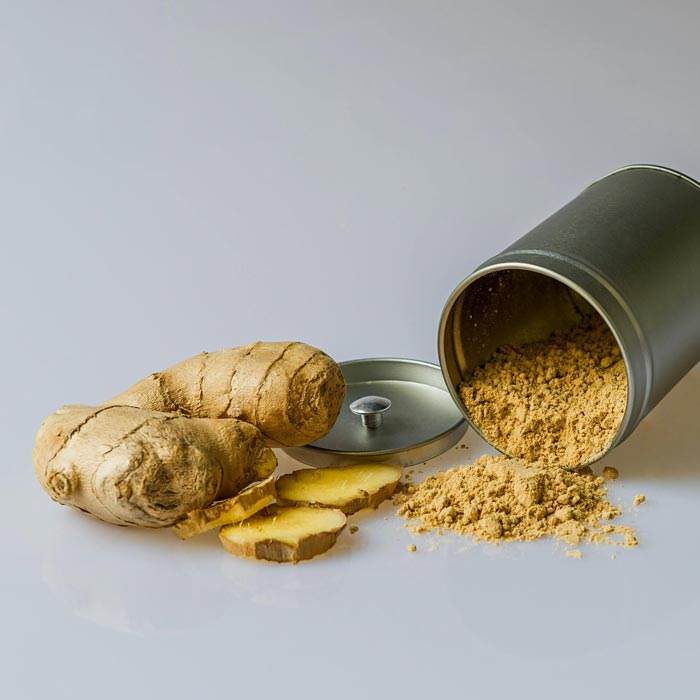Crohn’s Disease: What It Is, Symptoms, Causes & Treatment
IBD includes Crohn’s and ulcerative colitis. Both conditions affect different parts of the digestive system, but they share similar symptoms. Although the exact prevalence is not known, it’s estimated that 3.1 million Americans or 1.3% are affected by Crohn’s or ulcerative colitis. This is a significant increase from the two millions Americans who were diagnosed only a few years ago. Crohn’s affects both men and women, but it is more prevalent among Northern Europeans and Anglo-Saxon descendants. It usually develops before the age of 30.
Crohn’s Disease Causes
The cause of Crohn’s disease is not known . Researchers believe that genetics, environment and an abnormal immune response all play a part.
These factors have been associated with the development of Crohn’s disease.
- Abnormal immune reaction. The disease has an abnormal immune response which causes inflammation in the digestive tract. This inflammation can cause symptoms such as abdominal pain, fatigue, and changes in bowel movements.
- Genetics. Genetics. There is a greater risk for Crohn’s than ulcerative colitis. Between 5 and 20 percent of people with IBD had a parent, sibling, or child with Crohn’s or ulcerative colitis.
- Factors affecting the environment. As an example, Crohn’s is more common in developed countries than underdeveloped ones. Urban areas are more affected than rural ones. It is more common in northern climates than southern climates.
- Birth control and anti-inflammatory drugs. Smoking may trigger flare-ups. Oral contraceptives, as well as anti-inflammatory medications like ibuprofen and diclofenac, are all potential risk factors.
Stress and diet can worsen Crohn’s symptoms, but they do not cause it. Breastfeeding, on the other hand seems to reduce risk and be protective.
[ruby_related heading=”More Read” total=3 layout=1 offset=5]
Crohn’s Disease Symptoms
The symptoms can last from days to weeks. There may also be periods when there are no symptoms. These acute episodes can be mild or severe and last for a few days. severe flare-ups can be accompanied by intense discomfort, fever, fatigue and dehydration .
The following symptoms and signs may be present when the disease is active:
- A feeling of pain and cramping in your abdomen.
- Diarrhea can be bloody.
- Loss of appetite
- Weight loss.
- Fever.
- Mouth sores.
- Children with Crohn’s may have slow growth, joint pain, fever and weakness, before experiencing abdominal pain or diarrhea.
Crohn’s disease can lead to:
- Inflammation in the eyes, skin, and joints.
- Inflammation in the liver and kidneys.
- Anemia.
Intestinal blockages, bowel ruptures, pus collections (abscesses) and fistulas can be caused by Crohn’s. Fistulas form abnormal connections between the skin surrounding the anus or two parts of the intestinal tract. People with Crohn’s are also more likely to develop colon cancer than those without the condition.
Types of Crohn’s disease
The five types of Crohn’s are classified according to the part affected by inflammation.
- Ileocolitis. Affected is the end of the small and large intestines.
- Ileitis. An inflammation of the last portion of the small intestine.
- Gastroduodenal Cohn’s. Affected is the stomach and first part of small intestine.
- Jejunoileitis. An inflammation of the middle portion of the small intestine.
- Crohn’s colitis. Only large intestine affected.
Diagnose Crohn’s Disease
Doctors use a number of tests in addition to the physical examination and the evaluation of symptoms to confirm or rule out the diagnosis. Anemia can be detected by blood tests, while stool tests detect infections and blood loss. When they suspect Crohn’s disease, practitioners may also order a colonoscopy or MRI. The diagnosis is confirmed by an endoscopy and biopsy.
Treatment for Crohn’s Disease
- Antiinflammatory drugs. The treatment of Crohn’s begins with anti-inflammatory medications, such as corticosteroids and mesalamine.
- Immune suppressors. Next, we will consider immune suppressors. These drugs reduce inflammation by targeting the immune system. Azathioprine, methotrexate and other immune suppressors are common.
- Biologicals. This is a class of newer drugs that are used to treat Crohn’s Disease. These drugs target specific immune system proteins. Ustekinumab, the latest biologic to treat this condition, is approved by the FDA.
- Additional medications may be prescribed to manage certain symptoms of Crohn’s disease. Antibiotics can be used to treat infections, fistulas and abscesses. Fiber supplements help manage diarrhea. Acetaminophen, also known as Tylenol, helps relieve abdominal pain.
- Iron, vitamins, and nutritional supplements can be used to treat malnutrition. After antibiotic treatment, probiotics may help restore gut flora and improve digestion.
In severe cases, intravenous fluids are administered in hospital. Blood transfusions are used to treat heavy bleeding. Most people with Crohn’s disease will need surgery. About one-third of patients may require a second surgical procedure to treat complications. Surgery may be indicated to treat intestinal blockage or drain abscesses, as well as close fistulas.
Crohn’s Disease Diet
Healthy lifestyles can help manage chronic diseases, including Crohn’s. A healthy diet, regular exercise and good sleep are all lifestyle factors that can help.
Some foods can trigger symptoms or make them worse. Certain dietary changes may help. Dieticians and nutritionists can prescribe a diet that will help manage the condition, reduce inflammation in the intestines, and improve overall health. Keep a food diary and note any connections between certain foods, and flare-ups.
These tips can help you manage Crohn’s Disease:
- Reduce your intake of fiber. Insoluble fiber, such as that found in seeds, fruits with skins, whole grains and vegetables, is difficult to digest by someone with Crohn’s disease. Replace high-fiber food with low-fiber alternatives like bananas and cantaloupe.
- A gluten-free diet can also be helpful. In a large study, two thirds of participants reported improvement in their symptoms. 38% also reported less severe symptoms or flare-ups after cutting out gluten.
- Do not consume dairy products. For those who are sensitive to dairy products, there are many plant-based alternatives, including oat, almond, and cashewmilk.
Highly processed foods, which are high in sugar, fats and preservatives, can also exacerbate the symptoms. The gut lining can be irritated by alcohol, coffee, hot and spicy foods. The low-FODMAP diet can help manage Crohn’s Disease and irritable Bowel Syndrome.
Resources
- Cedars Sinai. Gluten-Free Living: Gluten, Crohn’s and Ulcerative Colitis.
- Centers for Disease Control and Prevention. Inflammatory bowel disease.
- Crohn’s and Colitis Foundation. Causes of Crohn’s disease.
- MsdManual. Crohn Disease.







